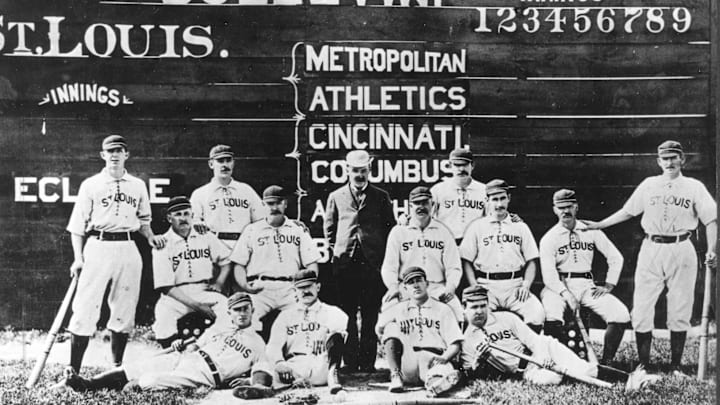Bill DeWitt Sr. once sued the St. Louis Cardinals, a decision that ultimately played a surprising role in shaping the franchise’s future. It was unforeseeable at the time that the lost lawsuit would lay the foundation for the Cardinals’ subsequent prominence in baseball, or that his son would one day own the franchise.
DeWitt started his career in baseball working in the Browns’ front office, learning from the legendary Branch Rickey. In 1936, he became vice president and general manager, securing a minority ownership stake in the struggling franchise. Financial hardship led the Browns to establish Dodier Realty and Investment to take ownership of Sportsman’s Park, located at Grand and Dodier Street.
Since 1920, the Cardinals had been renting the ballpark from the Browns. In 1937, they signed a 14-year lease, but by 1949, circumstances changed drastically. That year, Bill DeWitt and his brother Charles gained majority ownership of the Browns, just as the Cardinals were undergoing their own transition.
National Sports, Inc. purchased the Cardinals on January 10, 1948, later restoring the franchise’s original name: St. Louis National Baseball Club, Inc. On April 18, 1949, Dodier Realty & Investment Co. sued the Cardinals, filing Dodier Realty & Investment Co. v. St. Louis National Baseball Club in the Circuit Court of St. Louis. The Browns controlled Dodier, which meant the Browns effectively sued their rival and longtime tenant, the Cardinals.
Bill DeWitt Sr.'s lawsuit almost changed the trajectory of the St. Louis Cardinals
With financial difficulties mounting, the Browns sought to renegotiate the lease—or even force the Cardinals out entirely—to claim sole control of the St. Louis baseball market. Their argument hinged on a technicality: the sale of the Cardinals and their temporary name change, the Browns argued, had nullified the rental agreement. The case escalated to the Missouri Supreme Court in 1951, where one of Dodier’s attorneys was none other than Bill DeWitt Sr., who was also the Browns’ owner and general manager.
On April 9, the court ruled against the Browns. Shortly after, on May 23, 1951, The Sporting News reported that Bill DeWitt and his brother Charles had sold the team to Bill Veeck. Two years later, Veeck sold Sportsman’s Park to the Cardinals, and in 1954, the Browns moved to Baltimore, becoming the Orioles.
In a twist of fate, the Cardinals, instead of facing eviction, gained ownership of their home stadium, solidifying their place in St. Louis rather than moving to California. Without competition from a second franchise, the Cardinals thrived—winning 12 pennants and 5 World Series titles since 1954 while maintaining one of the highest attendance records in baseball. They also boast the third-highest number of players inducted into the Hall of Fame during that period.
Had the lawsuit played out differently, St. Louis might still have had the Browns, while the Cardinals could have ended up in Los Angeles, with Bill DeWitt Jr. as their owner. Instead, history took a different path—one that cemented the Cardinals as one of baseball’s premier franchises.
